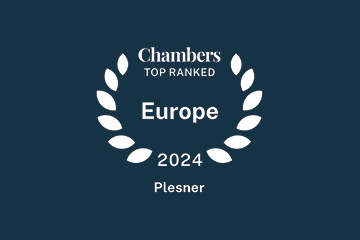The General Court annuls prohibition of 4-to-3 merger
By a ruling of 28 May 2020, the General Court, the lower court of the Court of Justice of the European Union, annulled the European Commission's decision to prohibit a 4-to-3 merger between two mobile network operators. The ruling specifies the conditions under which a merger may be prohibited even if it does not result in the creation or strengthening of a dominant position, including due to "non-coordinated effects".
The ruling of the Court
On 11 May 2016, the European Commission decided to prohibit a merger between two mobile telephone operators in the UK market (Three and 02). The merger would have reduced the number of competitors in the market from four to three and the merging parties would have had a combined market share of around 40%.
Under the EU Merger Regulation a merger should be prohibited if it significantly impedes effective competition. This may in particular occur as the result of the creation or strengthening of a dominant position but even in the absence of that a merger may give rise to sufficient anti-competitive effects, including so-called "non-coordinated effects". If non-coordinated effects occur, the merger lowers the competitive pressure significantly for one or several players in the market, and the merging entity and/or other players in the market consequently become able to, for instance, raise their prices, minimise their range of goods or reduce their quality to the detriment of consumers.
The Commission did not find in the specific case that the merger would be creating or strengthening a dominant position. However, the Commission found that it would significantly impede effective competition in the market due to non-coordinated effects. The Court did not agree with the Commission's assessment and annulled the prohibition.
Among other things, the Court established that the Commission can only intervene in a merger due to non-coordinated effects if such effects are detrimental to competition, for instance price rises, reduced quality etc corresponding to the effect of the creation or strengthening of a dominant position.
The Court also established that in order to prohibit an injunction, the Commission's theories of harm must be "sufficiently realistic and plausible" and not just theoretically possible, and the Commission must demonstrate the significant impediments of the merger by "a strong probability". According to the Court, this indicates a lower degree of probability than "being beyond all reasonable doubt" but a higher degree of probability than "more likely than not" which ought to be sufficient according to the Commission.
The Court also criticised the Commission's specific analyses on some points, including for having left out relevant facts. The Court's reasoning in that respect illustrates the specific requirements applying with respect to the Commission's analyses in merger cases.
The time for lodging an appeal has not expired yet and consequently it is not known at present whether the Commission will appeal the decision to the Court of Justice.
Plesner's comments
The ruling is first of all relevant to players operating in the telecommunications sector. The Commission has previously adopted a strict approach to 4-to-3 mergers among mobile network operators, even if they would not result in the creation or strengthening of a dominant position. It is possible that, due to the ruling, the Commission will be less restrictive when assessing such mergers in the future.
However, the scope of the ruling is not restricted to the telecommunications sector. The above general principles are also relevant to the Commission's assessment of mergers in other sectors, and the Court's criticism of the Commission's analyses may also act as a guide to the substantive analysis in many other merger cases.
Finally, the ruling is relevant to Danish competition authorities' assessment of mergers, including the Danish Competition and Consumer Authority which generally complies with the case law of Court of Justice.
Read the full Judgment of the General Court of 28 May 2020
Read the Commission decision of 11.5.2016






